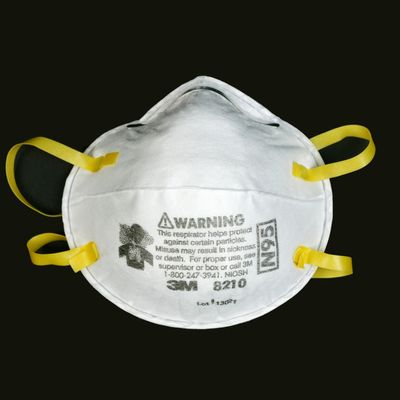
Please note the story you’re reading was published more than a day ago. COVID-19 news and recommendations change fast: Read the latest here to stay up-to-date. We’ve lifted our paywall on all essential news and updates about the coronavirus.
It’s hard not to panic about the novel coronavirus currently making its way across the world: it’s all over the news, including this very website. We’ve been told the single best way to protect ourselves and others is to wash our hands (often and thoroughly), and when soap isn’t available, to use hand sanitizer with 60 percent alcohol content or higher. We’ve been told to avoid touching our faces, which has proved challenging. We’ve also been told, repeatedly, that we do not need to buy or wear masks if we are healthy.
And yet, people keep buying masks, so much so that there’s a worldwide shortage. Where they can be found, they’re going for $100 or more. At best, this is unnecessary caution. At worst, it’s contributing to paranoia — and a supply shortage among people who actually need masks, like health professionals and people who are sick. This has to stop.
If you’re still unconvinced, note that the World Health Organization’s first-ever Tik Tok video, about the ways in which we can protect ourselves from the coronavirus, doesn’t mention face masks once.
In another video, Syra Madad, the senior director of New York City Health & Hospitals Systems-Wide Special Pathogens Program (say that five times fast), and Stephen Morse, a professor of epidemiology at Columbia University, explain that masks are ineffective for a number of reasons, largely related to fit. Normal surgical masks (those seen most frequently among public health workers and citizens alike) can leave space between the mask and the nose and mouth, especially among those untrained in their use. Most people who wear them will also move them aside frequently — to eat, to scratch their nose, to talk. When worn properly, these masks can help protect wearers from pollution or other pathogens, but they do not protect their wearers from viral particles.
Mainly, they are used to protect others from the wearer — as when surgeons wear them to protect their patients.
Another form of face mask, the N95, provide wearers more protection, but they are neither recommended nor reliable for average citizens. N95 masks need to be fitted to their wearers to work properly (read: not bought on shady pop-up panic websites), and even then, most people will find it difficult to wear them for very long, because they make it hard to breathe. There are people who need this sort of mask to do their jobs. If you aren’t one of them, don’t buy one. It’s a waste of your money, and actively harmful to those people who need them. Our best bet against coronavirus at this time remains ordinary, easy, and affordable: washing our hands.





